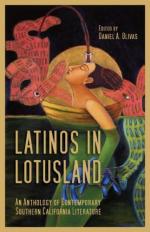|
This section contains 5,753 words (approx. 20 pages at 300 words per page) |

|
SOURCE: Bakker, Jan. “Time and Timelessness in Images of the Old South: Pastoral in John Pendleton Kennedy's Swallow Barn and Horse-Shoe Robinson.” Tennessee Studies in Literature 26 (1981): 75-88.
In the following essay, Bakker probes John Pendleton Kennedy's subtle critique of the pastoral ideal in Swallow Barn and his subsequent reaffirmation of this myth in Horse-Shoe Robinson.
An American scholar-critic has written that time is a “frightful entity” for many Southern writers. It is seen in a bad light in the works of such twentieth-century authors as William Faulkner, Thomas Wolfe, James Dickey, Ellen Glasgow, William Styron, and Eudora Welty.1 Often their concern is with time as the source of lost innocence, time in inexorable movement against scenes, visions, or recollections of withdrawn, timeless Southern idylls as old as is the pastoral dream of Eden itself: time passing into history that always leads away from Paradise. The frightful entity is...
|
This section contains 5,753 words (approx. 20 pages at 300 words per page) |

|


